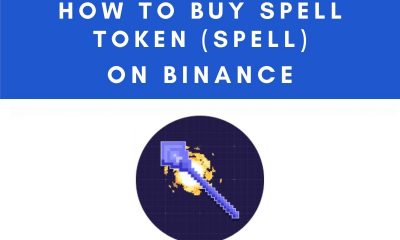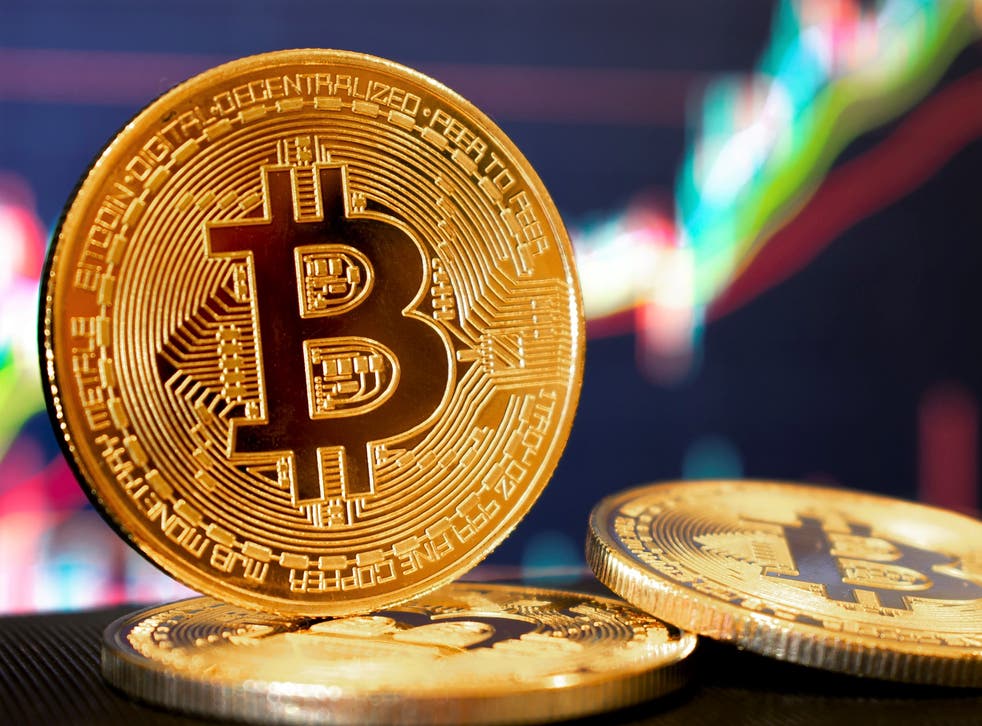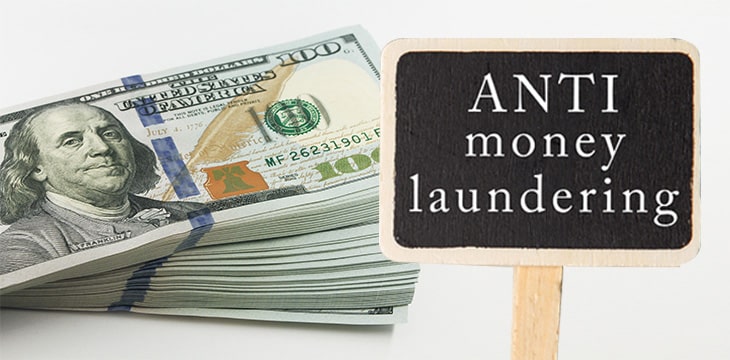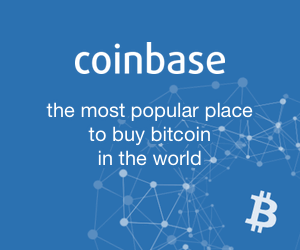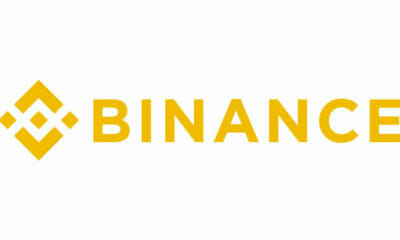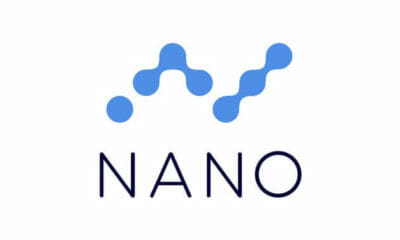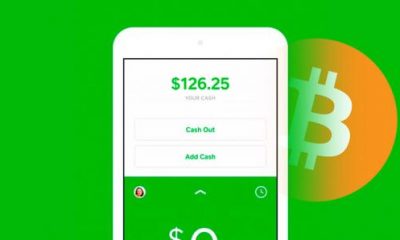Table Of Contents
- How To Buy Bitcoin (BTC) With Cash App
- How To Setup A Recurring Bitcoin (BTC) Investment In Cash App
- How To Sell Bitcoin (BTC) With Cash App
- How To Send Bitcoin (BTC) With Cash App To An External Wallet Or Contact
- How To Deposit Or Send Bitcoin (BTC) To Your Cash App
- Frequently Asked Questions (FAQ)
With over 36 million user in 2020, Cash App has exploded with popularity as one of the easiest ways to send and recieve cash on your mobile devices. Cash App now offers ways to buy, sell and trade Bitcoin and they even allow you to receive “cash boost” cash back rewards in Bitcoin instead of cash when using your Cash App Cash Card.
How To Buy Bitcoin (BTC) With Cash App
Step 1: Download Cash App & Sign Up
To start you will need to download the Cash App from the Apple app store or the Google Play store. Once the app is downloaded signup for an account and link a debit card or bank account to get started.
Step 2: Select Bitcoin (BTC) In Cash App
Once you’re signed into your account you will select the Bitcoin icon in the bottom taskbar. You will see the option to buy or send Bitcoin along with the current price of BTC. Click the buy button to start your purchase.
Step 3: Confirm The Amount Of Bitcoin (BTC) You Want To Purchase
When you click the Buy Bitcoin button you will be given the option to choose a predetermined amount or enter your own amount. You can choose a standard one-time order or a recurring investment. Learn more about setting up a recurring BTC investment in Cash App here.
Step 4: Confirm Your Bitcoin (BTC) Purchase In Cash App
After selecting the amount of Bitcoin you want to purchase in Cash App you will be sent to a confirmation page. This page will show the funding source, amount of BTC you will be purchasing, exchange rate, and any fees that will be added to your purchase. Currently, Cash App has some of the cheapest Bitcoin fees on the market. Click the confirm button to finalize your Bitcoin purchase in Cash App.
How To Setup A Recurring Bitcoin (BTC) Investment In Cash App
Step 1: Select Bitcoin (BTC) In Cash App
Once you’re signed into your account you will select the Bitcoin icon in the bottom taskbar. You will see the option to buy or send Bitcoin along with the current price of BTC. Click the buy button to start your purchase.
Step 2: Confirm The Amount Of Bitcoin (BTC) You Want To Invest On A Recurring Basis
When you click the Buy Bitcoin button you will be given the option to choose a predetermined amount or enter your own amount. Under the Buy Bitcoin text, click on the button that says Standard One Time Order, you will see a screen that will give you the option to Select A Frequency of investments, One-Time Purchase, Daily, Weekly, or Every Two Weeks. Choose the frequency that works best for you and press Done. The minimum is $10 for all recurring Bitcoin investments on Cash App.
Step 3: Confirm Your Bitcoin (BTC) Recurring Investment In Cash App
After selecting the amount of Bitcoin you want to purchase in Cash App you will be sent to a confirmation page. This page will show the funding source, amount of BTC you will be purchasing, exchange rate, approx time, and any fees that will be added to your purchase. Click the confirm button to finalize your Bitcoin recurring investment in Cash App.
How To Sell Bitcoin (BTC) With Cash App
Step 1: Sell Your Bitcoin
Once you have purchased your Bitcoin (BTC) you will be given the option to sell your Bitcoin to cash within the Cash App under the Bitcoin icon on the bottom of the taskbar. Click on the sell button to initiate the selling process.
Step 2: Confirm Your Sell
Upon clicking the sell button you will be taken to a confirmation page to finalize your sale of Bitcoin (BTC). You will see the destination (Cash App), the amount you will be selling, the current Bitcoin exchange rate, and any fees that will be applied to your sale. Once the sale is initiated you will see the amount in your local currency in your Cash App. After the confirmation, you will see your Bitcoin amount converted to cash in your local currency.
How To Send Bitcoin (BTC) With Cash App To An External Wallet Or Contact
Step 1: Send Your Bitcoin (BTC) To Another Wallet Or Contact
Under the Bitcoin screen in Cash App click on the Send arrow to start the sending process. You will see a popup that shows Deposit Bitcoin or Send Bitcoin, click on Send Bitcoin. If you are looking to deposit BTC into your Cash App learn how to do that here.
Step 2: Choose The Amount Of Bitcoin You Want To Send
The next screen will ask you how much Bitcoin (BTC) you want to send from your Cash App account. Choose the amount you want to send and click the “Send” button.
Step 3: Choose Where To Send Your Bitcoin (BTC)
Once you choose the amount you want to send you will be able to send it to another contact with Cash App or an external wallet such as Exodus, Coinbase or a cold wallet such as Trezor. In the “To” section enter the $CashTag or the BTC wallet address. Once you choose where you want to send the Bitcoin, click the “Next” button and confirm the transaction.
Note: Once you’ve processed your withdrawal in Cash App, your Bitcoin (BTC) will be sent to your external wallet. Transferring Bitcoin (BTC) can take time, so please allow up to a few hours for the transfer to complete.
How To Deposit Or Send Bitcoin (BTC) To Your Cash App
Step 1: Deposit Or Receive Bitcoin (BTC) To Your Cash App
Under the Bitcoin screen in Cash App click on the Send arrow to start the sending process. You will see a popup that shows Deposit Bitcoin or Send Bitcoin, click on Deposit Bitcoin.
Step 2: Share Your Bitcoin Address
You will see a popup with the Bitcoin address QR code and the option to copy the address or share the address. You can send the Bitcoin address or the QR code to the contact that is trying to send you Bitcoin. To send BTC between your own wallets, copy the address and initiate the send-in chosen wallets or exchanges. Always make sure you copy the address and double-check the accuracy, as sending BTC to a false address will result in a loss of funds.
FAQ
Are there any fees when buying or selling Bitcoin (BTC) On Cash App?
Cash App does not charge an additional percentage or fixed dollar amount. They use a price calculated from the quoted mid-market price, inclusive of a margin or speed. The mid-market price is a combined price of BTC across major exchanges to give the user an average price.
Note: When you buy Bitcoin (BTC) from Cash App, the margin may differ from when you sell Bitcoin (BTC) to Cash App. The price and margin may also be different from other exchanges/marketplace like Binance.
What happens when you sell your Bitcoin (BTC) on Cash App?
When you selling your Bitcoin (BTC) on Cash App the funds will be instantly available in your account in the chosen local currency. You can then transfer these funds into your connected bank account or spend with your Cash App debit card.
When should you sell your Bitcoin (BTC) on Cash App?
Selling your investment in Bitcoin is a personal choice, many investors take multiple factors into account before buying and selling their Bitcoin investments. Some of those factors include price fluctuations in Bitcoin & cryptocurrencies, personal financial needs, and personal investment strategy. We here at The Cryptobase are strong believers in the long term significance of Bitcoin technology and will be holding our cryptocurrency investments for the long term 🙂



